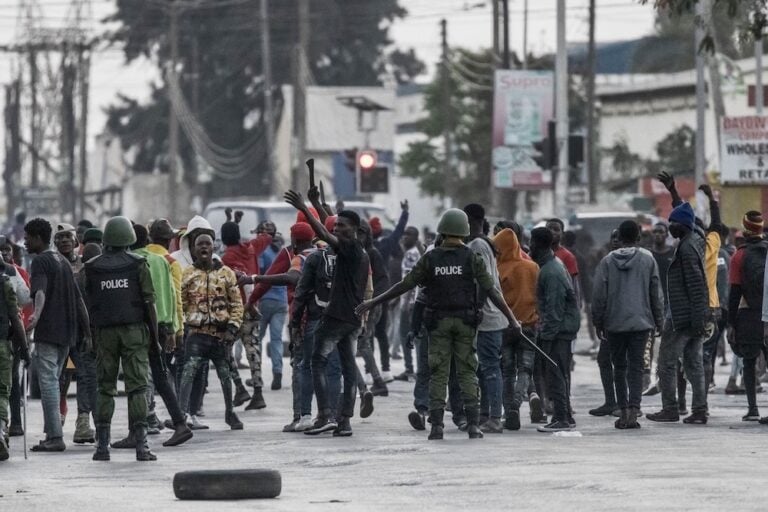(MISA/IFEX) – On 24 July 2001, Gershom Ndhlovu, acting news editor of the state-owned “Zambia Daily Mail”, and Jonathan Bwalya, a sub-editor, were suspended from work over a story published in the 23 July edition of the newspaper, which described a minister as “disgraced.” The introduction to the story published on the “Home news page” […]
(MISA/IFEX) – On 24 July 2001, Gershom Ndhlovu, acting news editor of the state-owned “Zambia Daily Mail”, and Jonathan Bwalya, a sub-editor, were suspended from work over a story published in the 23 July edition of the newspaper, which described a minister as “disgraced.”
The introduction to the story published on the “Home news page” described the minister of home affairs concerned, Peter Machungwa, who was one of three ministers recently probed for corruption and abuse of office, as “disgraced.”
According to information obtained by the Zambia Independent Media Association (ZIMA), Ndhovu, who was appointed to act as news editor this month, has since been charged with “gross incompetence” over the story. Bwalya faces a similar charge. Ndhlovu was promoted from the position of chief reporter for the “Zambia Daily Mail”‘s regional office in Ndola in June 2000, to deputy news editor based in Lusaka.
Reacting to the suspensions, Press Association of Zambia (PAZA) President Hicks Sikazwe said the journalists were mere victims of political intrigue. “We are aware of some journalists lined up for persecution and we fear that unless the issue at the ‘Daily Mail’ is handled objectively, innocent people may end up as sacrificial lambs.”
Sources close to the case suggested that Ndhlovu might have been a victim of an attempt to have him removed from the newspaper on the pretext of being “anti-MMD”(Movement for Multiparty Democracy, Zambia’s ruling political party). Suspicion is rife that the word “disgraced” was slipped in just before the story was laid out on the page.
Commenting on this, Sikazwe said: “We have reason to believe that in this election year there will be a lot of internal battles to malign individuals with a view of seeking favours. Journalists in election times become victims of dirty political campaigns.


